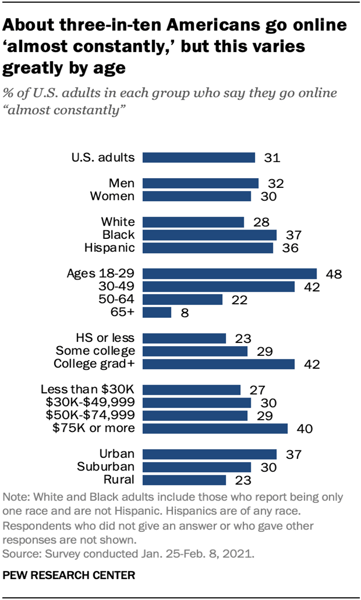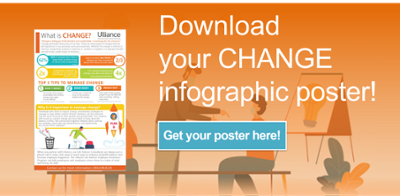Addiction. The need to gratify a craving regardless of the cost or consequences. Most people addicted to something don’t want to want it, and they wish they didn’t need the drug, the alcohol, the sex, the digital device, or the next roll of the dice to make them feel better.
Wait. Digital device? Yes, as technology advances, those who have the potential to become an addict can become addicted to being online. The concept was also popular when homes began to buy televisions. Experts believed it was only a matter of time before we had a whole generation of couch potatoes.
Later the hot debate regarding television’s addictive capacity and influence on children caused many parents to turn off the TV and send children out to play. Atari brought them back inside, and Gameboy kept them quietly occupied.
Walkman’s, iPods, computers, Play Stations, X-boxes, and in time, the smartphone have contributed to a world of disassociated and technology addicted individuals who are inept at the basic art of socialization. At least, that is what some would have you believe.
It’s true, we don’t live in Mayberry anymore, and social graces aren’t what they used to be. But times change, and so too must our tolerance and acceptance.
I’m not suggesting we tolerate and accept addiction as a new part of life and move on, but what we considered normal and appropriate 20 years ago doesn’t look the same now.
If you or a loved one is challenged with an addiction in your lives please seek outside help, contact your organization's EAP or talk with a friend about getting help. As an HR professional, having a comprehensive EAP to assist your employees is an invaluable tool for the total well-being of your team and your organization.
How prevalent is Digital addiction?
It depends on your age, but about three in ten Americans go online ‘almost constantly.’
This chart put together by PEW Research Center shows the demographic breakdown of the 85% of constantly online Americans.

School-age children between eight and ten years old spend eight hours a day in front of various digital devices, and teenagers bank more than 11 hours a day in front of a screen.
What is too much screen time? Does constant connection to the internet lead to digital addiction?
If you are learning and being creative instead of watching Netflix for hours, are you digitally addicted?
What is Considered Addiction, Digital or Otherwise?
Addiction is a mental health condition where the user repeats the behavior despite the negative consequences. Most addicts cannot get well without assistance and seek treatment to overcome their addiction.
Defining digital addiction is complicated. What separates “a lot” and “too much”? When is someone considered an addict? Psychologists use several criteria when diagnosing addiction, but the first thing they want to know is how the behavior affects daily life.
Definition of addiction
1: a compulsive, chronic, physiological or psychological need for a habit-forming substance, behavior, or activity having harmful physical, psychological, or social effects and typically causing well-defined symptoms (such as anxiety, irritability, tremors, or nausea) upon withdrawal or abstinence : the state of being addicted
Addiction and other diagnosable disorders are specified in the Diagnostic and Statistical Manual of Mental Disorders (DSM), which clinicians use to diagnose mental health disorders.
The DSM is a joint effort between the American Psychiatric Association (APA) and the World Health Organization (WHO).
The task force consists of more than 400 experts from 13 countries contributing their knowledge in the following disciplines:
- psychiatry
- psychology
- neurology
- pediatrics
- primary care
- epidemiology
- research methodology
- statistics
Digital Addiction has not yet been recognized as an addiction in the DSM manual. However, many health and mental health experts agree digital addiction has adverse effects on a person’s mental and emotional health.
But what if “constantly connected” didn’t mean “obsessed with” when utilizing the internet? What if while you are connected, you are learning and creating rather than consuming media or gaming or watching movies and YouTube videos?
Internet Usage – Are You Consuming or Creating?
The internet is ripe with misinformation, biased viewpoints and algorithms skewed towards specific user demographics, and it can be a dangerous landscape for even the most casual internet browsers.
- A person who constantly consumes information from the internet or social media often loses the ability to be objective. Constant internet gaming at the expense of your family, your job and even your sleep puts you out of touch with reality.
- You have a digital addiction when technology takes precedence over real life, and your only social interactions happen in chat rooms.
- However, people also go online to develop and express their creative personalities. Online platforms offer creatives a way to express their creative works of art, literature, and even NFTs.
When you consume content, you are a passive participant idly processing information without feedback.
12 Signs Internet Usage is More Than
a Bad Habit
A bad habit is something you do over again, often without thought, because you’ve done it before. If your internet use is more of a mindless action, practicing mindfulness may be all that’s necessary to forge a good habit.
Addiction happens when a person knows their internet usage is causing problems but spends 19 hours a day online anyway.
Consider these symptoms as possible signs of Digital Addiction:
- Dry eyes
- Negligent self-care
- Back and lower back pain
- Carpal tunnel syndrome
- Weight gain from lack of movement
- Impaired sleeping patterns
Social and Psychological Symptoms
7. Lack of interest in activities previously enjoyed
8. Academic decline
9. Lack of communication with family and friends
10. Failure to manage time
11. Preference for an online community of friends and support
12. Isolation
We already know addiction is associated with stress, anxiety and often depression. We also know lack of sleep contributes to weight gain, heart problems and confusion.
But in the absence of a defined classification of Digital Addiction, it seems impossible to isolate clinical conditions associated with the dependency that meets diagnostic criteria.
Simply said, no one has figured out which specific behaviors cause impairments that lead to addiction.
So, turn bad habits into good habits, take frequent breaks and be aware of your mental and physical health.
When you partner with Ulliance, our Life Advisor Consultants are always just a phone call away to teach ways to enhance your work/life balance and increase your happiness. The Ulliance Life Advisor Employee Assistance Program can help employees and employers come closer to a state of total well-being.
Investing in the right EAP or Wellness Program to support your employees will help them and help you. Visit www.ulliance.com, or call 866-648-8326.
The Ulliance Employee Assistance Program can address the
following issues:
• Stress about work or job performance
• Crisis in the workplace
• Conflict resolution at work or in one’s personal life
• Marital or relationship problems
• Child or elder care concerns
• Financial worries
• Mental health problems
• Alcohol/substance abuse
• Grief
• Interpersonal conflicts
• AND MORE!
References
Atske, A. P. (2021, March 26). About three-in-ten U.S. adults say they are ‘almost constantly’ online. Retrieved from PEW Research Center: https://www.pewresearch.org/fact-tank/2021/03/26/about-three-in-ten-u-s-adults-say-they-are-almost-constantly-online/
Editorial Team. (2020, September 24). SELF HELPTechnology Addiction: Health Effects & Strategies To Overcome. Retrieved from healthystic: https://healthystic.com/self-help/technology-addiction-health-effects-strategies-to-overcome/
Musetti, A. C. (2016, June 06). Challenges in Internet Addiction Disorder: Is a Diagnosis Feasible or Not? Retrieved from Frontiers in Psychology: https://www.frontiersin.org/articles/10.3389/fpsyg.2016.00842/full
Stotts, I. (2021, November 19). Technology Addiction: Signs, Risk Groups, And Treatment Options. Retrieved from Substance Abuse Resources: https://addictionresource.com/addiction/technology/
Technology Addiction. (n.d.). Retrieved from Addiction Experts: https://addictionexperts.com/types-of-addiction/technology-addiction/
The Impact of Healthy Employees in the Workplace. (2019, April 19).
Zuckerman, A. (2020, May 20). 46 INTERNET ADDICTION STATISTICS: 2020/2021 DATA, FACTS & PREDICTIONS. Retrieved from Compare Camp: https://comparecamp.com/internet-addiction-statistics/


